Established in 2015 and online since 2016, it has more than one million “active neighbors” in 2019. The nebenan.de platform serves to promote neighborhood dialogue, addressing a key social issue in the process. After all, in a world that is undergoing dynamic change, our social environment is becoming increasingly important. One of the co-founders provides an insight into the platform.
Neighbors that you know play a key role in turning a home into a good home
Michael Vollmann, co-founder of nebenan.de and managing director of the nebenan.de foundation
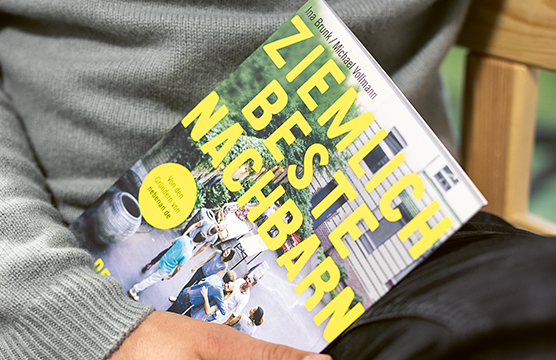
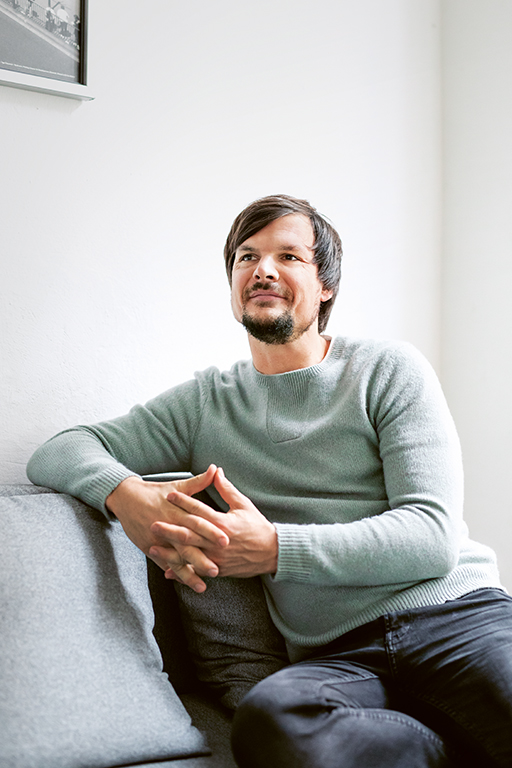
What is the idea behind nebenan.de? How did you come up with it?
Michael Vollmann: The idea was essentially born out of necessity. My brother Christian and I come from a small town, like a number of the other four co-founders of nebenan.de. Back there, our day-to-day lives were characterized by experiences enjoyed as a community: Everyone knew each other, people would meet up in the local clubs and associations and doing charity work was the norm. That’s something we missed when we moved to the city. Urban environments are very anonymous and older people often experience loneliness. Gone are the days when people used to introduce themselves to their neighbors when they moved in. Nowadays you might say a quick “hi,” but that’s usually about it.
This was something we wanted to change within our neighborhood – we started off with an email distribution list which very quickly evolved into a specialized local platform. The response was so positive that we wanted to make the platform available to every single neighbor throughout Germany.
It would appear that your idea has touched upon a pressing issue in modern society …
Vollmann: Exactly. Today, nebenan.de brings interested neighbors from all over Germany together on the online platform. People use the platform to network with other locals in their neighborhoods, they pursue joint interests and set up regular meet-ups in local bars and restaurants. Many of them use the platform to find lost possessions, exchange things they no longer need or organize extra tuition for their children. Voluntary work is another element of the platform: People offer their time to go shopping for older people, get involved in food-sharing concepts and organize non-monetary donations for the homeless or refugees.
To what extent can institutions use the platform as well?
Vollmann: nebenan.de is open to anyone that plays an active role in neighborhood development work, urban development or neighborhood initiatives. This includes associations in particular, as well as charitable and municipal institutions. The only criteria that we impose are that the organization has a link to the local area and that the neighborhood will benefit. The platform offers municipal authorities, in particular, a new way of communicating with their citizens: They can use it to draw attention to local events, find voluntary workers and provide information on projects within the area. The city of Hanover, for example, is using the platform to provide registered neighbors with information on its support services for senior citizens, while the local authorities of Berlin-Lichtenberg post information on current neighborhood activities on the platform.
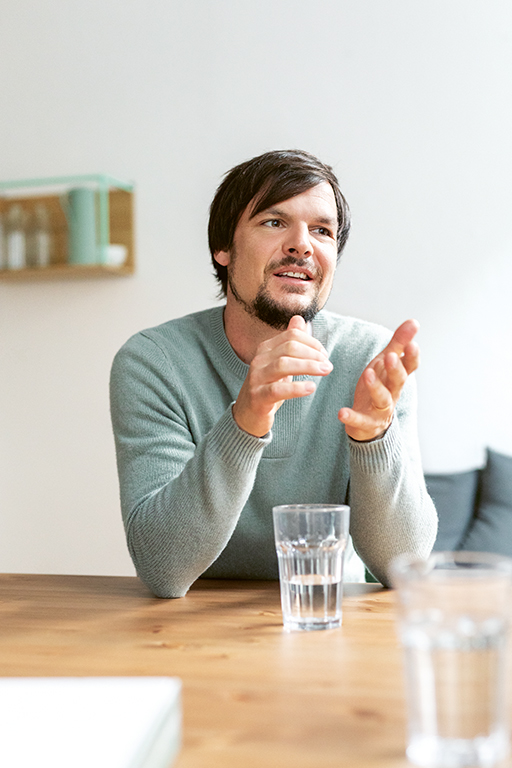
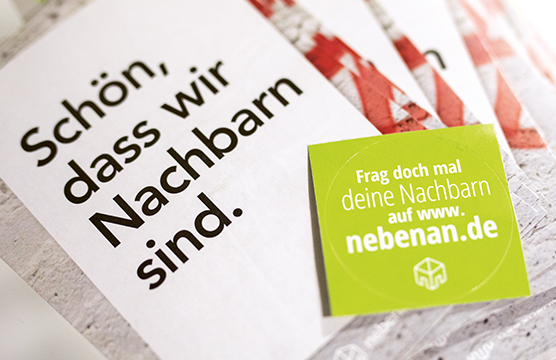
7,000 neighborhoods have already been connected at www.nebenan.de; this number is expected to grow to 30,000.
Does that include information on businesses?
Vollmann: Yes, but the businesses have to be local ones. We see the local retail sector and local service providers as key players in the neighborhood and we want to help strengthen the role that they play. The yoga school, the physiotherapist and the little food store operated by a sole proprietor are key elements of a functioning neighborhood. The framework for their participation, however, is limited, meaning that nobody can use the platform for targeted advertising measures or to roll out data-driven business models, for example.
What about your foundation? What is its role?
Vollmann: Our fundamental focus is on the social idea behind the concept. The not-for-profit nebenan.de Foundation is also helping us to turn this idea into a reality. It has allowed us to attract additional strong partners, such as the German Federal Ministry for Family Affairs, Diakonie Germany (the social welfare organization of Germany’s Protestant churches) and also Vonovia. We work hand-in-hand with these partners to organize events such as “Neighbors’ Day” or the “German Neighborhood Award,” for example. Vonovia also provides key support for the prize.
What is the idea behind the German Neighborhood Award?
Vollmann: Since 2017, this award has gone to individuals who show a particular commitment to fostering a sense of community within their neighborhood. The foundation nominates 100 or so projects out of all of the applications received. 16 state juries and one federal jury then select the winner from among the nominees. The aim is to showcase commitment within the neighborhood and give it the recognition it deserves.
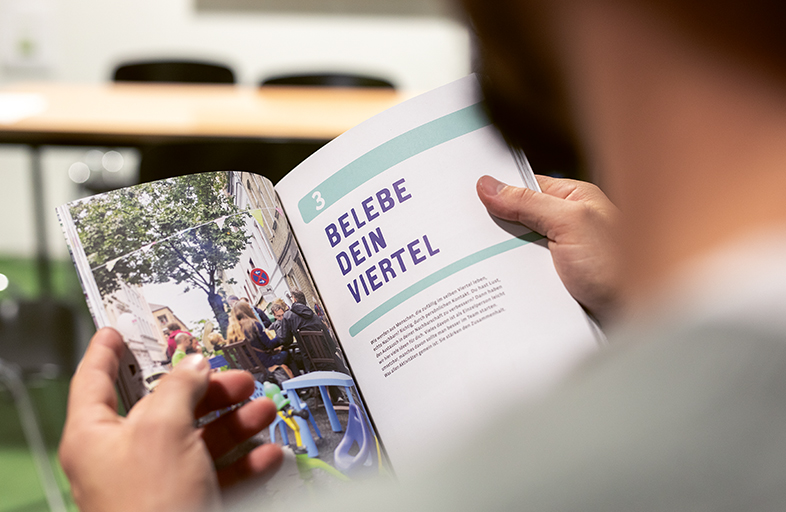
What day-to-day problems do you face? How do you deal with the issue of data protection?
Vollmann: It takes a long time for new concepts to be accepted in Germany and people are very skeptical about anything relating to the Internet. One of the main tasks that we face is trying to dispel these fears. The issue of data protection was a top priority for us from day one. We only the request the data that is absolutely necessary to operate the platform. This essentially includes the user information. An external data protection officer makes sure that we stick to these principles. We use a comprehensive verification process to ensure that the people who want to communicate with each other on the platform really are neighbors. We have obtained certification for our technical platform from the German Association for Technical Inspection, TÜV.
What is your impression of people in Germany?
Vollmann: The level of commitment shown is impressive. The Germans really like getting involved. At the same time, we can see that digitization is releasing centrifugal forces that would appear to be pulling society even further apart. Younger and older people don’t run into each other anymore. Community service has been abolished. People from different social groups barely mix. This poses a threat to social cohesion and it’s a trend that we want to counteract.
Has anything taken you by surprise?
Vollmann: We have noticed that people are really interested in the concept of the neighborhood. Ideas such as “belonging” to a certain place, or having a place to call “home,” are becoming more important. There is a certain pull back towards the idea of a “local” community. Neighbors that you know play a key role in turning a home into a good home. This is certainly a trend. I was surprised by the high level of commitment shown by people when it comes to getting down to the hard work. At magazin.nebenan.de, we tell some great stories about local people who are committed to helping refugees or other people in need. We have 3,500 registered local initiatives on our platform, and then there are the countless activities that are organized informally. The wealth of ideas and the dedication shown are impressive. It’s something that really motivates us and confirms that we are on the right track.
What are your plans for nebenan.de? What is your vision for the future?
Vollmann: In the medium term, we want the platform to be self-sufficient in financial terms. We also want our foundation to have even more of an impact in terms of supporting democracy and promoting social cohesion and integration.
We currently have 1.1 million active users in more than 7,000 neighborhoods located in over 350 municipalities. My vision is for us to one day be able to offer a platform to all 30,000 neighborhoods in Germany. I hope that our work will turn the large number of strangers who are currently living next to each other day in, day out, into good neighbors again and that this will help to alleviate loneliness and strengthen social cohesion at local level. Neighborhoods can offer us a place to call home in our dynamic world.